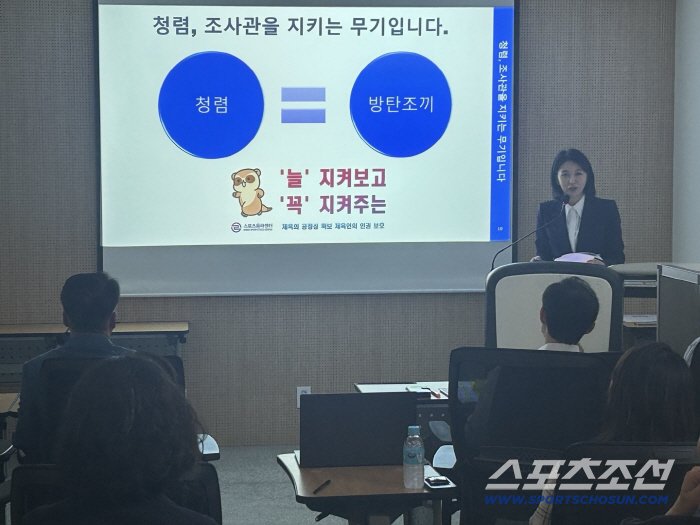Enhancing Ethical Standards in Public Institutions
The Sports Ethics Center, under the Ministry of Culture, Sports and Tourism, recently conducted a comprehensive integrity education program for all its employees. The initiative aimed to foster an ethical consciousness, build a clean organizational culture, and emphasize the importance of ethical governance within public institutions. This event took place at the center’s headquarters in Mapo-gu, Seoul, on the 25th.
Chairman Park Ji-young, a prominent leader in women’s sports, played a pivotal role by delivering a special lecture titled “Integrity is the Investigator’s Weapon.” During this session, she highlighted the significance of integrity as a fundamental principle, drawing parallels with the International Olympic Committee (IOC) Ethics Committee, which also emphasizes integrity through the Olympic Code. This connection helped enhance the effectiveness of the education and encouraged active participation from both executives and employees.
Fostering a Culture of Transparency and Responsibility
All members of the Sports Ethics Center, including investigators from five regional offices who participated via online Zoom, engaged in reflective discussions about the importance of integrity. They pledged to uphold ethical standards and focused on educational sessions that emphasized the creation of an organizational culture promoting transparency and achieving management goals. These sessions also covered compliance with the Conflict of Interest Act and the Code of Conduct for Employees.
The initiative aimed to lay the foundation for transparent and responsible administration. By emphasizing cooperation and belief in government activities, the center sought to strengthen public trust in institutions and improve the overall clean image of the organization.
Integrity as a Core Value
Chairman Park Ji-young underscored the critical role of integrity, stating that it acts as a “bulletproof vest” protecting investigators. She emphasized that integrity is not just an option but an obligation, highlighting its role as the beginning of transparent administration, fair judgment, and public trust. Both executives and employees are committed to being trusted by the people and athletes, ensuring they truly represent the voices of sportsmen.
Broader Implications and Public Engagement
Beyond the immediate scope of the Sports Ethics Center, the emphasis on integrity resonates with broader societal values. It reflects a growing recognition of the need for accountability and ethical behavior in all sectors, particularly in public institutions. By fostering a culture where integrity is prioritized, organizations can build stronger relationships with the communities they serve.
This focus on ethics also serves as a reminder of the responsibility that comes with power and influence. Leaders must set the tone for their teams, demonstrating that ethical behavior is not only expected but essential for maintaining public confidence.
Conclusion
The integrity education program conducted by the Sports Ethics Center represents a significant step toward creating a more transparent and accountable environment. By reinforcing the importance of ethical governance, the center aims to contribute to a broader cultural shift that values honesty, fairness, and responsibility. As society continues to demand higher standards of conduct, initiatives like these play a crucial role in shaping a future where integrity is not just a concept but a lived reality.

